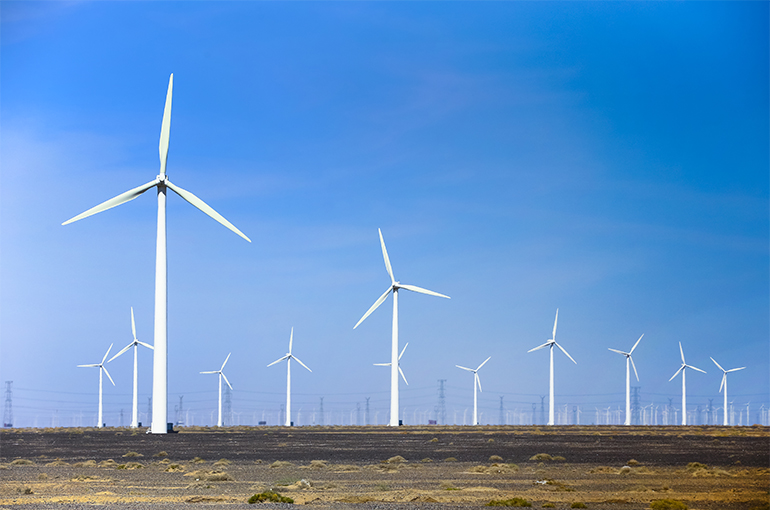 Global Grid Constraints Hamper Renewable Energy Integration, REN21 Report Says
Global Grid Constraints Hamper Renewable Energy Integration, REN21 Report Says(Yicai) Sept. 25 -- Urgent improvements in grid infrastructure are crucial to fully unlock the potential of renewable energy sources, according to a new report by REN21, a global non-governmental organisation specialising in renewable energy.
While renewable energy hit a record high last year, accounting for 30 percent of global electricity, transitioning away from fossil fuels cannot be achieved by simply increasing the share of renewables, Paris-based REN21 said in its Renewables 2024 Global Status Report’s Energy Systems and Infrastructure module.
The focus cannot be on generation alone, noted Andrea Wainer, project manager for renewable energy and sustainability at REN21. A systemic approach is needed to ensure supply aligns with demand and electricity flows efficiently, she said, adding that grid infrastructure must be robust enough to integrate the renewable capacity being deployed.
"We need to consider the global energy system in a systemic way, ensuring supply aligns with demand and that energy flows effectively," Rana Adib, executive director of REN21, told Yicai. “It's crucial to have the necessary infrastructure in place to integrate the generation capacities we plan to deploy.”
Investment, Planning Needed
Substantial investments and meticulous planning are critical for modernizing electricity grids, the report said. Investment in the global grid rose 5 percent to USD310 billion last year from the previous one, but this is only half of what is needed each year to facilitate a successful renewable energy transition.
"Planning must occur at national, and sometimes local, levels for distribution grids," Wainer said. “This process necessitates integration across stakeholders, including local authorities and governments, to effectively plan the required infrastructure.”
"China leads the world in investments in storage capacities," Adib noted. Its strategy has shifted from investing in ramping up renewable generation to addressing grid limitations due to significant curtailment issues, she added.
"This investment has significantly increased, reflecting a perspective aimed at integrating high shares of variable renewable electricity, particularly solar PV and wind, into the grid," according to Adib.
China more than tripled its investments in battery storage last year from 2022, with related capacity surging 250 percent to 27.1 gigawatts, the report said. The growth was mainly due to favorable economics for utility-scale battery storage and strong policy support.
From China to the World
"China is a leader in renewables supply chains, however, in addition to global supply chains, we need regional supply chains to create opportunities for local development from social and economic perspectives," Adib pointed out.
“So in this sense, these measures can be positive, and they can be an opportunity to build partnerships that allow for local development and benefits,” she added.
"Renewable energy has shifted from being solely an energy topic to a central focus of economic and industrial attention," Adib said.
"Some historic trade partners are increasingly favoring local value chains and supplies," she noted, adding that this has led to some geopolitical tensions, but the knowledge exchange is already happening.
"We have already seen Chinese manufacturing companies establish facilities outside of China," Adib said. "This is a typical adjustment. We need to triple renewable energy capacities each year, which means significantly increasing our PV, wind, and geothermal infrastructure.”
When asked about the impact of the US decision to impose higher tariffs on solar cells imported from China, Adib said the Global Status Report looks into status, not making projections. “However, these topics refer to global trade and geopolitical dynamics, not only renewable energy,” she said.
REN21 has been releasing the Renewables Global Status Report since 2005. It will explore renewable energy's economic and social value-creation aspects in its next module, continuing its comprehensive coverage of the energy system.
Editor: Martin Kadiev